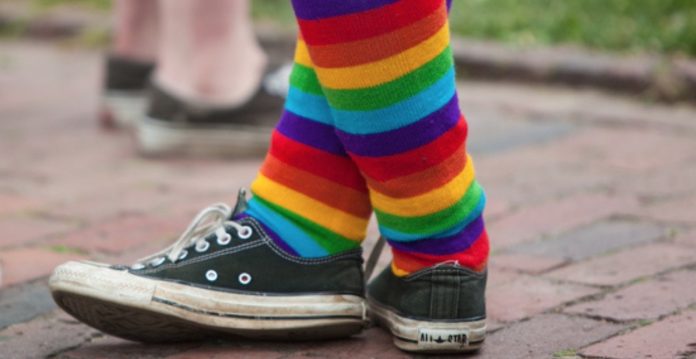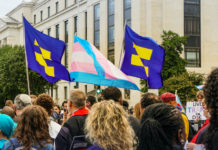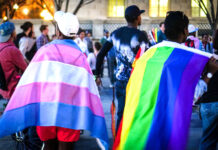[This column appears in the September/October 2021 issue of Boston Spirit magazine.]
There is increasing understanding among those who advocate for children that structural biases embedded in the child welfare system hurt youth and families, and that these harms fall especially harshly on Black, Brown and Indigenous families. The “child welfare” system, rather than protecting children, often creates harms by over-policing and unnecessarily separating families and then failing to provide appropriate services and supports for involved children and families. It is also clear to those of us who advocate for LGBTQ youth that they are subject to particular mistreatment—bias, discrimination, harassment and violence—when involved with the child welfare system.
A new report from the Massachusetts Commission on LGBTQ Youth highlights the crisis conditions facing child welfare involved LGBTQ youth in Massachusetts specifically.
The findings in the report, “LGBTQ Youth in the Massachusetts Child Welfare System: A Report on Pervasive Threats to Safety, Wellbeing, and Permanency” (available at mass.gov/orgs/massachusetts-commission-on-lgbtq-youth) are alarming, but not surprising.
Drawn from national research, years of reports to the Commission from LGBTQ Youth, providers, caregivers and advocates, as well as interviews with young people and foster parents impacted by the system, the report makes two things startlingly clear:
- A lack of a clear, comprehensive agency policy affirming LGBTQ youth, a lack of affirming placements, inadequate training for staff and foster families, and long delays and even denials of access of necessary health care constitute an emergency situation for LGBTQ youth that far too often leads to harm, violence, bullying, self-harm and other devastating outcomes; these impacts often fall most harshly on Black and Brown LGB youth and transgender youth, who face multiple biases and structural barriers.
- The MA Department of Children and Families (DCF) and our legislators need to act now to address these issues.
One transgender young person quoted in the report describes a litany of harms that undermined their health and well-being which resulted in them eventually attempting suicide. They were repeatedly misgendered, moved from foster home to foster home, placed in an unsafe situation in a group home that did not match their gender identity and where they were bullied and threatened, and denied access to gender-affirming health care.
A foster parent describes having to educate DCF staff herself on how to affirm transgender youth, from using accurate names and pronouns to information about health care. She describes having to navigate bias, misinformation and delaying tactics from multiple professionals in the system in order to advocate for a transgender child in her care to get her basic medical needs met.
GLAD and other youth advocacy organizations have been calling for change and action by DCF repeatedly for several years. We have alerted state leaders to systemic issues and harms for LGBTQ youth and urged accountability, accurate and consistent data collection and reporting, and development of a comprehensive LGBTQ youth policy among other key issues. Concerned staff members at DCF have also advocated for change from within. Together with Citizens for Juvenile Justice, GLAD has convened a MA LGBTQ Child Welfare Alliance to advocate for systemic change by bringing together impacted youth and families as well as service providers and community organizations who know this work and the needs of LGBTQ youth in the system best.
The Youth Commission’s report demonstrates the need for immediate action from DCF on critical recommendations, including:
• Comprehensive, intersectional data collection and reporting that allows DCF and other responsible entities to track outcomes for LGBTQ youth and to better understand and meet their needs.
• Development and implementation of a comprehensive LGBTQ policy, and training for all adults that come into contact with LGBTQ youth, including staff, foster families and providers. Neighboring states such as Connecticut, Rhode Island and Vermont, as well as Massachusetts sister agencies like DYS, have policies DCF can draw on.
• An increase in and tracking of affirming placements for LGBTQ youth, in both foster homes and group settings.
• Improved, more timely access to gender-affirming health care for transgender youth.
• You can join the effort to address the critical needs of LGBTQ youth in the child welfare system by asking your Massachusetts state legislators to take the following actions:
• Pass H.211/S.88 to create an independent Foster Care Review Office to improve accountability, transparency and oversight for the foster care review process, to strengthen protections for youth in DCF care and custody.
• Pass An Act Relative to Accountability for Vulnerable Children and Families (H.239/S.32) with a requirement that DCF consistently collect and report intersectional sexual orientation and gender identity data.
• Create a statutory foster child bill of rights with explicit protections for LGBTQ youth, including access to gender-affirming medical care.
Although significant, structural forms to our child welfare system are needed overall, there is a clear and urgent path forward for addressing the crisis situation facing LGBTQ youth in Massachusetts. As the Commission’s report demonstrates, those youth cannot wait any longer for change.
For a link to the report and further information, visit www.glad.org/dcf.









